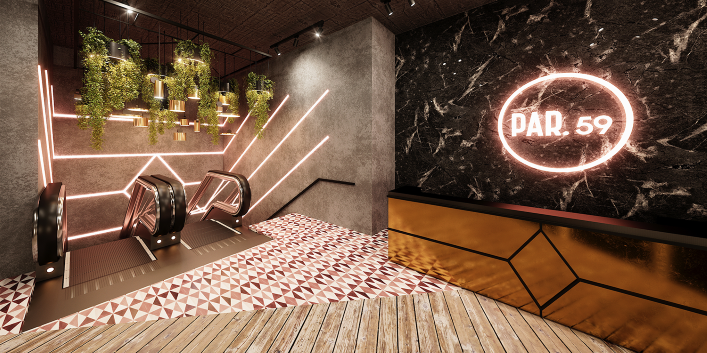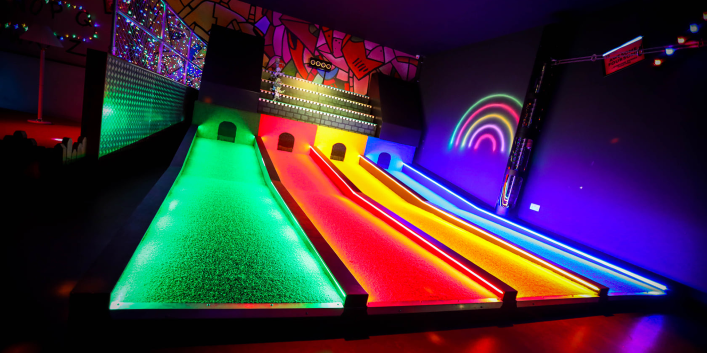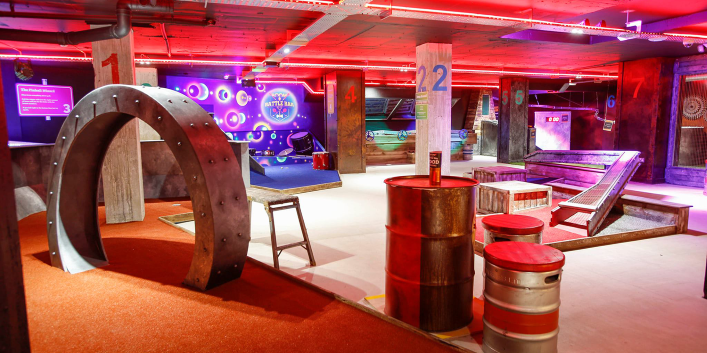As more people in the UK are cutting down their alcohol intake, Welsh businesses are starting to see the potential of a growing market

We are slowly stopping drinking. The coronavirus pandemic has kerbed the UK’s booze habits, as pub, bar and club closures have led many to reduce their alcohol intake, or cut it out entirely.
The annual market report from the Wine and Spirit Trade Association published at the end of 2020 showed that overall alcohol sales fell during the year, with retail sales failing to make up for the closure of pubs and restaurants. However, sales of low- and no-alcohol drinks have rocketed over 30 per cent since the nationwide lockdown in March 2020, according to market research carried out by Nielsen. Research by supermarket Tesco also showed that almost half of 18-34-year-olds planned to have a sober Christmas last year.
However, this is not a new phenomenon: a report by the Welsh government in 2016 noted the public’s desire for “dry bars,” as well as for existing licenced premises to further promote “cheap, non-alcoholic beverages at their establishments.” This coincides with research from Alcohol Change UK that noted changes in drinking behaviour across the country. Part of this, the research states, is down to “shifting cultural norms” – drinking is so heavily associated with occasions such as “celebrations, weekends, food, and a range of social gatherings” because of how alcohol companies market their product:
Alcohol marketing saturates our culture with the idea that drinking is a necessary accompaniment to everyday life and to every occasion
Alcohol Change UK, The Alcohol Change Report
The research goes on to find that “around 20% of the UK population does not drink, and a great many more drink only occasionally,” as well as that young people are drinking less. Academic research carried out across the globe in 2019 found the same, and attributed this to the “devaluation of alcohol” as people become more aware of some of its adverse effects. There is also the number of teetotal celebrities to consider, which in the UK includes the likes of footballer Gareth Bale, Olympian Mo Farah, singer Lily Allen, and actor Ewan McGregor.
In light of all this, there is an increasing gap in the market for venues to cater to people, particularly younger people, who do not drink alcohol, but still want a night out with their friends to socialise. This is a gap that businesses in Wales are beginning to market themselves towards: instead of clubbing, Welsh businesses are starting to turn to other activities that constitute a night out for the younger generation, including high-end crazy golf, electric darts, and even axe-throwing: here are three of the most exciting experience bars in South Wales…
Par 59 is bringing a touch of class to crazy golf…

Although it is the second of Gareth Bale’s business ventures in Cardiff, after Elevens Bar & Grill on Castle Street, Par 59 is the first to have an alcohol-free focus. Though the venue does serve alcohol at its bar, it also boasts a range of curated, alcohol-free mocktails: Bale, who himself does not drink, said that he hoped Par 59 would offer a different experience to simply “going out and getting plastered.”
Speaking to WalesOnline, he noted the growing market for “hybrid destinations” such as Par 59 that offer consumers a group activity that amounts to more than drinking. “We’ve seen the popularity of hybrid destinations and how kind of fun it is,” he said. “But obviously at the moment we want to focus on Cardiff, establishing Par 59 and getting the business correct in Cardiff. Then, if everything goes well, we would look to go nationally and internationally.”
While Covid-19 has put plans on hold temporarily (the venue was originally scheduled to open in March last year), Elevens Group Ltd managing director Jamie Humphrys is confident that Par 59 will be open before 2021 is out. “The [last] year has been a huge challenge, and the delays have been stressful and frustrating,” he admits – but he also notes that “everyone involved remains fully committed to the project.”
Par 59 aims to begin recruiting staff for its opening in late spring, and Jamie even hints at expansion plans for the brand. “We’re excited to be planning for the time when people can socialise again,” he says. “Post-Covid, we are certain there will be a strong demand for safe, fun environments where people can enjoy something a bit different and meet with friends again – and [we] can certainly see how this would apply in other cities too! Watch this space.” It seems Gareth Bale’s footballing career isn’t his only venture with a bright future…
Bunkers! is bathing it in neon…

A variety of venues across the UK have demonstrated the demand for high-end, neon-drenched crazy golf, and Bunkers! has South Wales covered. The venue opened in December 2019, and attracted over 43,000 visitors between its opening and its forced closure in March 2020.
Like the other venues featured on this list, Bunkers! is well aware of its attraction to people who don’t drink alcohol. That’s something that manager Richard Byrne sees as a “main selling point” of the brand: “It’s not a known drinking venue: it’s more of a first date sort of place, rather than anything else,” he explains.
“We like to think of it as a place where groups of people can come and interact with each other while they’re going round the course – it’s more about time spent together than drinking.” Not that drinkers should be put off, of course, as Bunkers! does serve booze, “and people can have a few drinks if they want, but our main selling point is the experience, not the alcohol,” as Richard puts it.
There is no denying that the brand has suffered as a result of the pandemic: Richard notes the Welsh government’s “less detailed and more cautious approach” to reopening the hospitality sector in Wales, and as a result he is uncertain of when Bunkers! will be able to reopen, or what its future will be.
“[The Welsh government’s approach] is making staff unsure of what could happen [in terms of reopening], as we are just guessing at this point,” he says. He also reveals that the brand’s expansion plans, which were set to launch Bunkers! across the UK, have been “put on hold at the moment.” Plans for a venue in Cardiff “have unfortunately fallen through” due to the pandemic, but there are very early conversations of a venue opening up in Norwich in the near future.
Nonetheless, Richard is hoping that, once a plan for reopening is set, Bunkers!’ initial popularity will see the business start to truly thrive in South Wales, and across the UK.
And Boom: Battle Bar is hosting competitive axe throwing…

In November Cardiff became only the second city in the UK to play host to Boom: Battle Bar, an adventure bar franchise that boasts activities including Bavarian axe-throwing, electric darts, skee-ball, and shuffleboard. Despite its opening weeks being beset by Covid restrictions and varying levels of lockdown, manager James Wilson feels confident that the easing of restrictions in the coming months will help bring more customers and increasing revenues to the venue.
Like Richard, James is a little wary of the Welsh government’s approach to unlocking hospitality in the coming months, but is still optimistic about reopening. “We do feel like when we open, things are going to be big and it’s going to be busy, and everybody’s going to be wanting to get out and do stuff – but it’s just a waiting game at the moment,” he says. He adds that attendance during the first few weeks of opening in November was “good,” given the Covid-19 restrictions in place: “On peak days people were queueing outside: we were at capacity for the number of people we could have in, which was about 180.”
A big attraction of the franchise is that it does not require alcohol consumption to be enjoyed, and this is something that James and the heads of the franchise have certainly been leaning into. “The whole point is that it’s something to do on a night out that doesn’t have to involve getting really drunk or going to a nightclub. I guess we sort of see it as an alternative nightclub for those that don’t need or want to drink,” he explains, before elaborating on the franchise’s plan to cater to the growing alcohol-free market by offering “a selection of non-alcoholic cocktails and non-alcoholic beers, as well as a wide range of soft drinks.”
As for the future of the franchise, it seems to be full steam ahead for Boom. James explains that the franchise heads, “have gone nuts with [expansion plans], to be fair.” Having started out last spring with only one venue in Norwich, Boom now has plans for “about another ten [locations] that are either in various stages of development or ready to open.” Grab an axe and start practicing, folks: it looks like Boom is here to stay.
